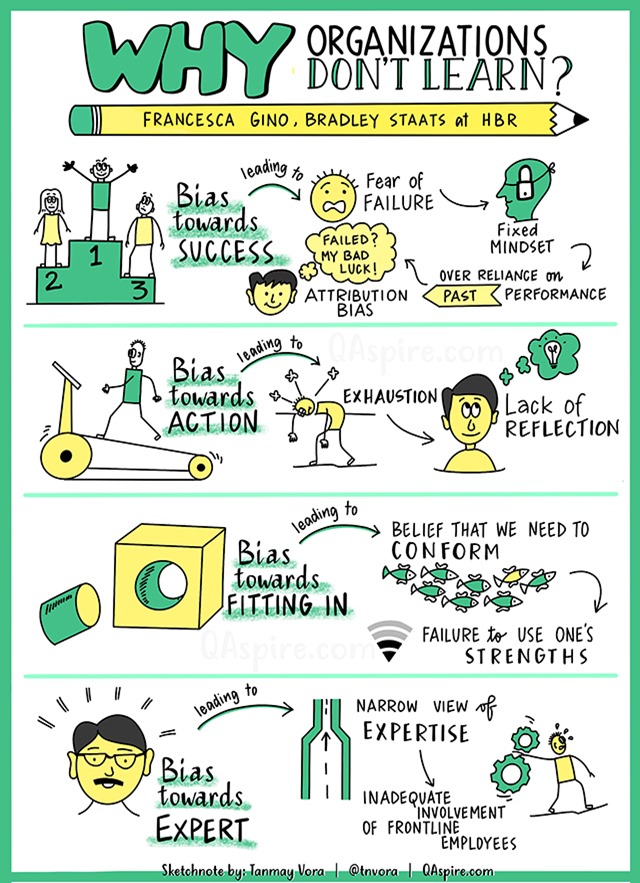Our traditional obsessions—success, taking action, fitting in, and relying on experts—undermine continuous improvement.
As we, the leaders, deal with tomorrow, our task is not to try to make perfect plans. Our task is to create organisations that are sufficiently flexible and versatile that they can take our imperfect plans and make them work in execution. That is the essential character of the learning organisation.
– Gordon R. Sullivan & Michael V. Harper, Hope is Not a Method (1997)
I really loved the below illustration that distills key biases that keep organisations from learning – taken from this longer article from Harvard Business Review, it’s well worth a read. In short, it identifies that there are four main biases leaders have, which in turn create challenges:
- Bias Toward Success – leaders across organisations may say that learning comes from failure, but their actions show a preoccupation with success. This focus is not surprising, but it is often excessive and impedes learning by raising four challenges: fear of failure, a fixed mindset, over reliance on past performance and the attribution bias.
- Bias Toward Action – how do you usually respond when you are faced with a problem in your organisation? If you’re like most managers, you choose to take some kind of action. You work harder, put in even longer hours, and place added stress on yourself. You’re more comfortable doing something, even if it is counterproductive and doing nothing is the best course of action. This leads to challenges including exhaustion and lack of reflection.
- Bias Toward Fitting In – when we join an organisation, it’s natural to want to fit in. But this tendency leads to two challenges to learning: believing we need to conform and failure to use one’s strengths.
- Bias Toward Experts – Organisations tend to define “expert” too narrowly, relying on indicators such as titles, degrees, and years of experience. However, experience is a multidimensional construct. Different types of experience—including time spent on the front line, with a customer or working with particular people—contribute to understanding a problem in detail and creating a solution. A bias toward experts can also lead people to misunderstand the potential drawbacks that come with increased time and practice in the job. Though experience improves efficiency and effectiveness, it can also make people more resistant to change and more likely to dismiss information that conflicts with their views.

Andy.